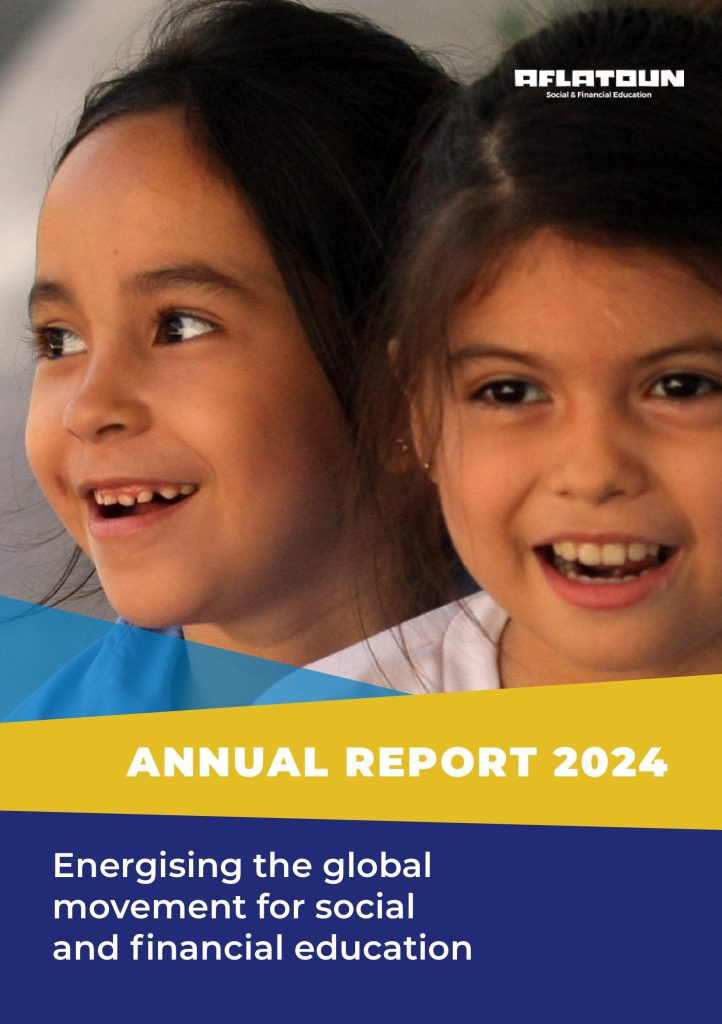The COVID-19 pandemic was a huge disturbance to children’s education across the world, with the average child losing 54% of their school year’s contact time by November 2020. With school closures, income loss, and a rapid shift to distance / online teaching, it also exacerbated pre-existing inequalities in accessing literacy learning, disproportionately affecting 773 million non-literate young people and adults.
Importantly, the necessary move to distance learning highlighted the digital divide in terms of access to electricity and the internet, technology infrastructure, and the ability to engage properly with technology and the online platforms. Aflatoun’s partners were also impacted, with many forced to close or work remotely with inadequate preparation, and reporting cash flow problems and negative effects on staff well-being.
However, our partner network displayed incredible resilience and innovation in the face of such challenges, and continued to work tirelessly to ensure that children and youth continued to receive crucial social and financial education relevant to the 21st century. Adapting their programmes for distance learning was no easy task, especially given the disparity of digital literacy and access to technology between students, but our partners were creative with tackling these issues. Amongst many other solutions, partners used methods such as small learning group phone calls, launching platforms that can be fully downloaded for offline use, delivering information and content to students’ homes on CD / DVD, and using Zoom lessons with take-home material.












